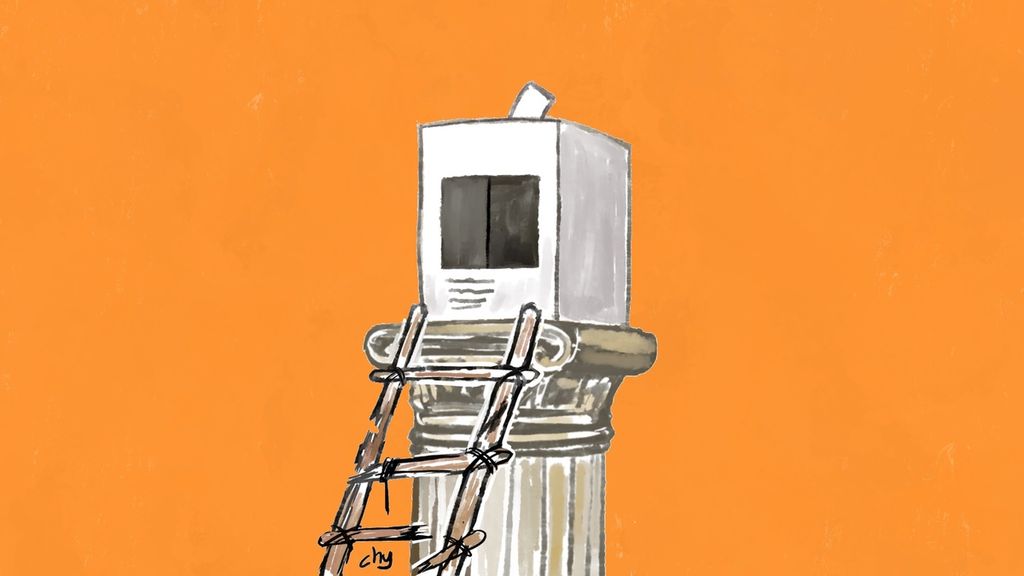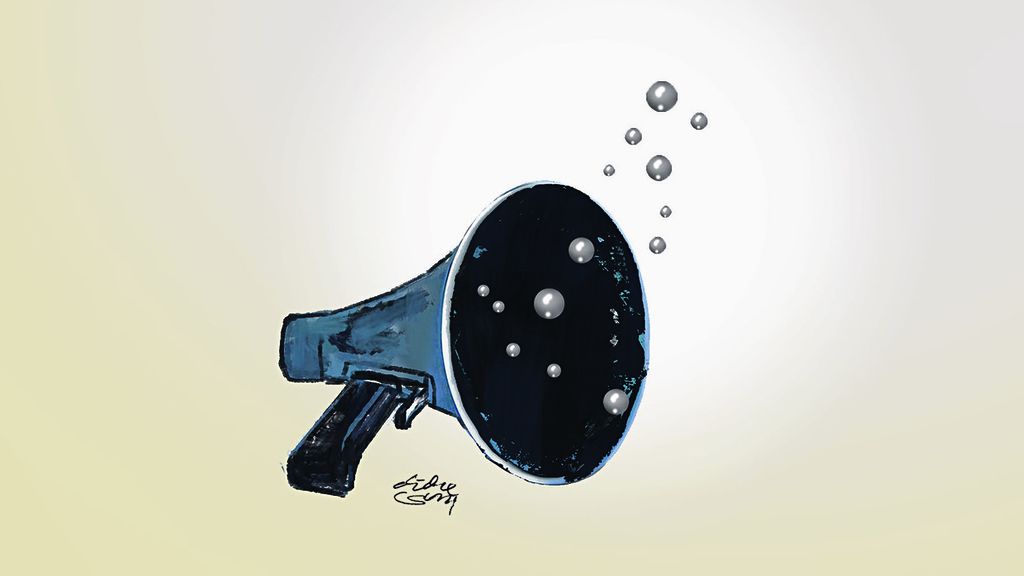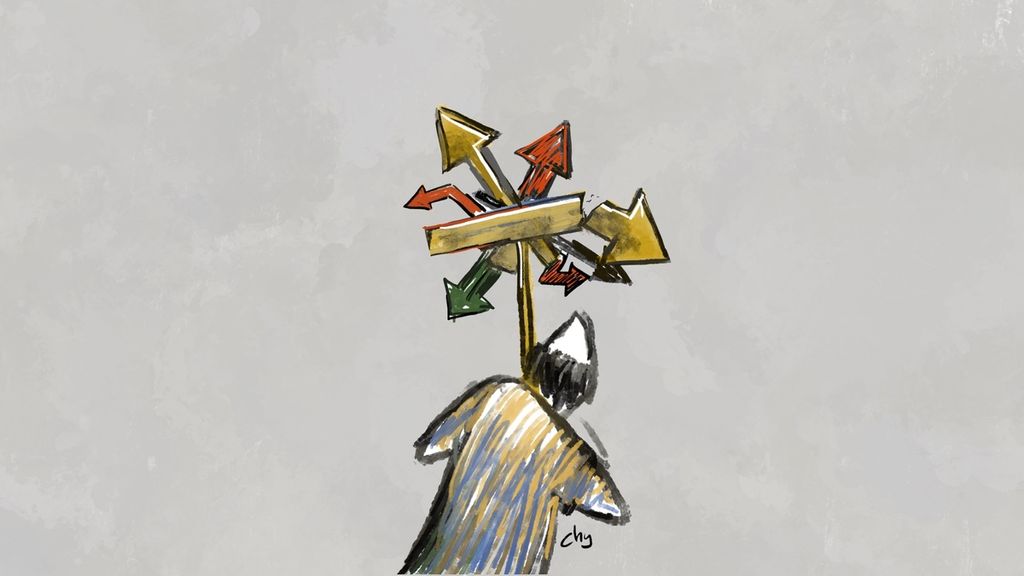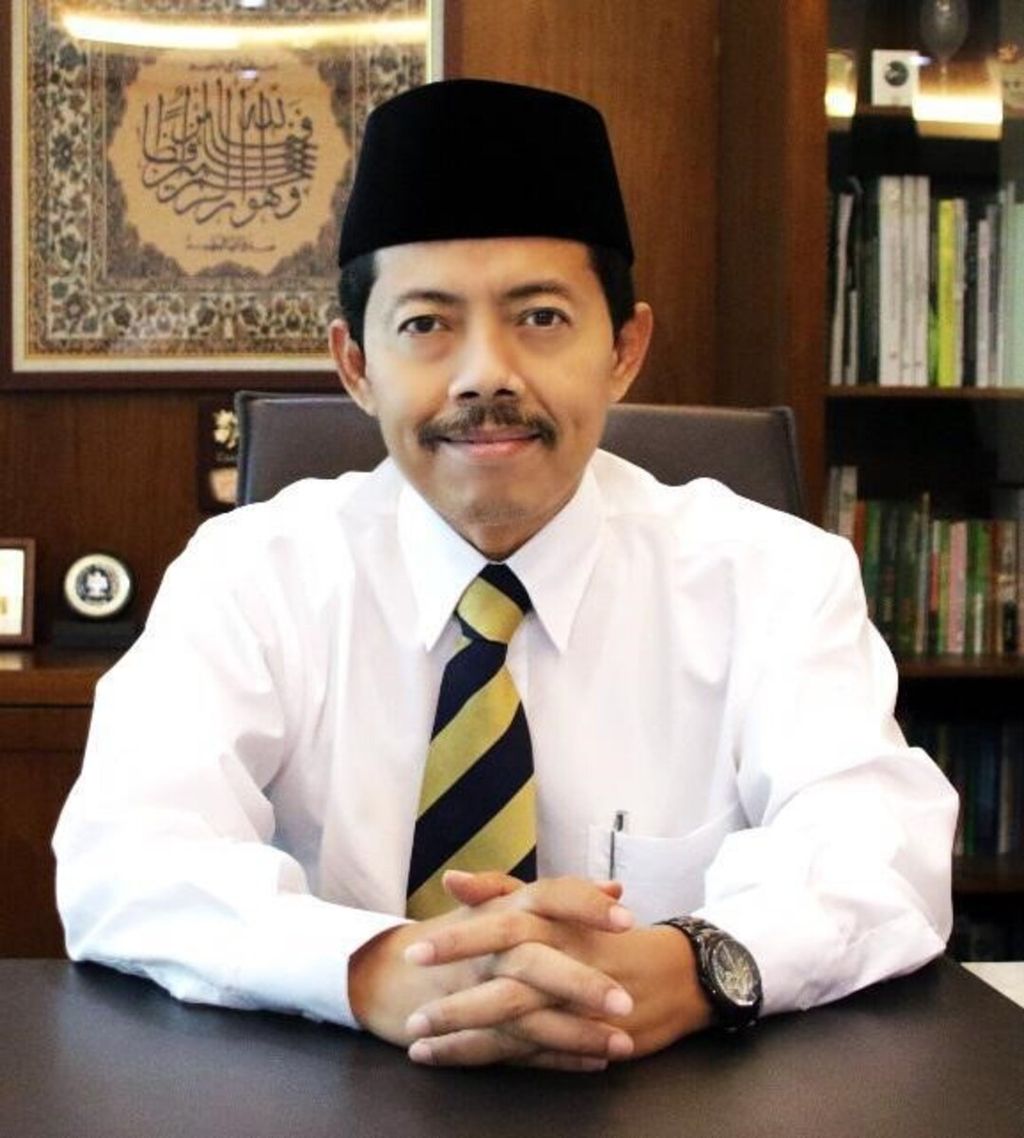Paving Way for Democracy to Thrive
Reforming democracy should also be pursued through the strengthening of accountability based on ethical and moral values with a view to averting erosion and decay of democracy.

Approaching a tense and politically-loaded 2024, parties have started to "warm up" their political engines. Maneuvers have been carried to form a coalition.
Consolidation among party elites has also been intensified in order to build the chances of winning the election. These days the political stage is a display of the high mobility of the political party elites, both vertically and horizontally. Of course, the goal is to woo as many electoral votes as possible in the upcoming elections.
Several political parties initiated the establishment of joint secretariats down to the regions to strengthen the alliance base. Whatever they call their alliances, they are keen to show they are consistent about their alliance ties down to the grassroots level. However, these political alliances have so far been sporadic, temporary and without a strong value base.
Also read:
> The Hyperpolitics of Our Digital Democracy
> Public Opinion over 2024 Presidential Candidacy
As a result, alliances between political parties is more likely to become the hub of the political crowd. The locus of gathering of different political parties’ figures is not based on a strong value base, but the same electoral political interests and agenda.
In the perspective of democratic politics, elites’ maneuvers on the political stage are a normal and inevitable phenomenon. However, with no intention whatsoever to downplay the meaning of their actions and maneuvers, I see there is one thing absent from the current political endeavors in this country: the politics of value and the politics of meaning for a better Indonesia.
It is in this context that getting rid of weeds, thorns, pebbles and all kinds of obstacles that could hinder the smooth path of democracy should become an important agenda for collective work. Do not let the political hype and clamor turn into disinvestment and involution, not investment in the future of our democracy.
“Battle” versus “war”
The endeavors and actions of the party elites will be worth the investment for improvement of democracy if they are not bogged down on what HG Wells (1913) referred to as winning a "battle". It is when the vertical-horizontal mobility of the nation's elite rests simply on the ambition to win the five-year political event.
Unfortunately, this "battle" is often treated as the ultimate goal of the elite's political endeavors. They neglect the aspirations about building something much bigger and meaningful to improve the quality of democratic politics in this country. This is the "war" or "great battle", which is almost absent from the nation's political scene these days. In a religious context, it is called jihad akbar (great endeavors).

In a battle, the prevailing philosophy is victory. Whatever method is taken is not important as long as the end result is victory. Even if it should entail the exploitation of identity politics, which is proven to have ripped apart social harmony and divide society. It is when politics becomes an arena for a fiercely fought battle full of deception, dirty tactics and all kinds of low politics maneuvers. This can potentially reduce the noble value of civilization and humanity.
Not surprisingly, what emerge from a battle are the politics of hatred, fragmentation and social disharmony.
Ideally, the electoral political process carries the relevance with multifaceted solutions.
Generally, a war in the political context of our democracy is an endeavor to ground the noble values of Pancasila and realize the ideals of the Unitary State of the Republic of Indonesia as set forth in the 1945 Constitution: 1) Protect the entire Indonesian nation and all of people's interests; 2) Bring forth people’s welfare; 3) Educate the nation; 4) Participate in creating world order based on freedom, true peace and social justice. These ideals of democratic politics should become the political vision of all elements of the nation. We should not become overly preoccupied in how to win five-yearly battle (read: election).
More specifically, a battle on a regular basis must be directed toward overcoming the various fundamental problems that currently plague this nation through increasing the nation's competing capacity and combating the Gini ratio and economic inequality, including the problems of malnutrition, health, poverty and unemployment. Ideally, the electoral political process carries the relevance with multifaceted solutions. What often happens is the opposite, with the electoral process turning into an arena only for ordaining the elected elites.
Democratic accountability
One of the most crucial strategies to pave the way for democracy to flourish is to strengthen democratic accountability. This should be the nation’s biggest concern.
Malaysia’s Prime Minister Anwar Ibrahim raised similar concern at the CT Corp Leadership Forum on Monday (9/1/2023). He said that people engaged noisily and vigorously in democracy, but ignored the accountability. He added that the practicality of democracy could not be judged solely on elections, but its relevance to us based on our accountability for characters, morals and ethics.
Democratic accountability covers two things, which are electoral political process and post-election empowering utilization of democracy.
Also read:
In the electoral political process, accountability weighs to some extent on how the election process and mechanisms are run on trusted and accountable principles. Post-election, the accountability is determined by optimizing the use or utilization of democracy to fulfill the aspirations of voters (Mark Philp, "Delimiting Democratic Accountability", Political Studies, 2009).
Political scientists generally define “accountability” in the perspective of principal-agent theory, namely the level of adherence of the elected parties to their political promises during the campaign. The government can be said to be accountable if voters are satisfied with its performance in carrying out public services. On the other hand, voters can sanction those who do not perform by revoking the bestowed mandate in any electoral political process (Przeworski et al, Democracy, Accountability, and Representation, 1999).

Democracy decay
Anwar's statement is relevant to the efforts that seek people’s mature awareness about democracy in this republic in light of various forms of decay, such as corruption, money politics and vote-buying.
This phenomenon of democracy decay is predicted to persist in the political dynamics in the years ahead. If we cannot rid ourselves of this kind of democracy decay, it is certain that the road to fully fledged democracy will be increasingly steep and winding.
Indications of prevailing money politics in the upcoming election are not mere figments. The ballooning amount of money (apart from the official election budget) is the basis for our suspicion that practices of money politics are lurking to strengthen their grips again, which can erode our democratic accountability.
Also read:
According to Mandiri Sekuritas chief economist Leo Putera Rinaldy, there will be an injection of Rp 118.9 trillion (US$7.74 billion) to Rp 270.3 trillion in cash this year as part of social assistance and various forms of "political expenditure" ahead of the election. It is an absolutely fantastic amount!
From a democracy perspective, the practices of money politics and its various derivations clearly damage and erode the level of democratic accountability in this country. Law No. 10/2016 Article 73 stipulates the prohibition of money politics in elections. Article 73 emphasizes that (1) candidates and/or campaign teams are prohibited from promising and/or giving money or other forms of materials to influence election organizers and/or voters. Anyone who is involved in money politics, be it campaign teams, members of political parties, volunteers or other components, is subject to criminal sanctions in the form of imprisonment and cash fines.
In addition to the practices of money politics, buying and selling votes during the recapitulation of election results is also another threat that erodes our democratic accountability. In this country, the practices of buying and selling votes have long been a phenomenon every election season (Burhanuddin Muhtadi, Vote Buying in Indonesia, 2019). This calls for shared commitment to strict supervision over various forms of possible irregularities during the election, especially the circulation of money politics.
The practices of money politics and its various derivations clearly damage and erode the level of democratic accountability in this country.
Supervision over politically vested policies by incumbents, especially in the form of distribution of social assistance, also needs to be tightened internally and externally.
There is no other choice to pave the way for our democracy except to treat the five-year electoral political process as a battling front of the "war", which mandates endeavors to fight for the common ideals of founding of the Unitary State of the Republic of Indonesia, improving the quality of life for the nation, one that is just and civilized, and solving various convolving problems of this nation.
Reforming democracy should also be pursued through the strengthening of accountability based on ethical and moral values with a view to averting erosion and decay of democracy.

MASDAR HILMY
Masdar Hilmy, Professor of Social Sciences and Postgraduate Director of Sunan Ampel State Islamic University (UIN)
This article was translated by Musthofid.